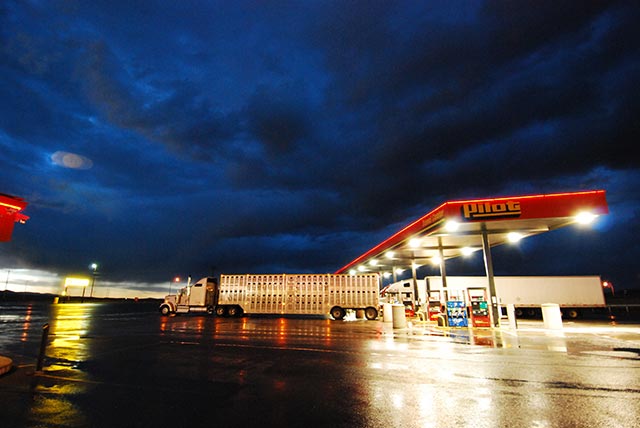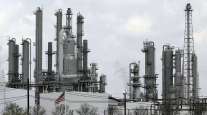Diesel Declines for First Time Since February

 Scott Butner/Flickr
Scott Butner/FlickrThe U.S. average retail diesel price declined for the first time since late February, the Department of Energy said April 4.
Diesel declined 0.6 cent to $2.115 and is 66.9 cents lower than a year ago, DOE's Energy Information Administration said.
The dip is the first since Feb. 22, when it rose three-tenths of a cent. That ended a streak of 14 declines.
The price of diesel was unchanged in the East Coast from a week ago and increased in six regions across the country. The largest rise was in the Rocky Mountain region, where it increased 2.9 cents to $2.123 a gallon.
The Gulf Coast had the lowest average price at $1.983, falling 1.8 cents.
EIA also said the average price of regular gasoline climbed 1.7 cents a gallon to $2.083, but it is still 33 cents cheaper than a year ago. Gasoline prices rose in all regions of the country.
West Texas Intermediate for May delivery fell $1.09 to close at $35.70 a barrel on the New York Mercantile Exchange, the lowest settlement since March 3, Bloomberg News reported.
Brent for June settlement dropped 98 cents, or 2.5%, to $37.69 a barrel on the London-based ICE Futures Europe exchange.
U.S. crude inventories probably rose 3 million barrels last week, according to a Bloomberg survey conducted before an EIA report April 6. That would leave stockpiles at 537.8 million, the most since 1930.
Saudi Arabia’s deputy crown prince said his country will freeze output only if Iran follows suit, putting in doubt the prospects of a deal to freeze supply.
Producers are scheduled to meet this month to discuss an agreement on capping supplies. Iran’s oil minister said he will attend the gathering if he finds the time. Russian oil production reached a post-Soviet high in March.
"The concept of an OPEC, non-OPEC cut or freeze is a joke," Stephen Schork, president of the SchorkGroup Inc. in Villanova, Pennsylvania, told Bloomberg.
"The Saudis aren’t about to do anything when the Iranians continue to increase production. The Russians just announced that they’re pumping at a post-Soviet high, and they’re the ones that have been jawboning the most."
The Saudi comments have halted a rally of more than 40% in oil since mid-January.
U.S. average #Diesel fuel price on 4/04/16= $2.115/gal, DOWN $0.006 from week ago https://t.co/DXpKA5SOn3 #truckers pic.twitter.com/XdaheNKNtn — EIA (@EIAgov) April 4, 2016




